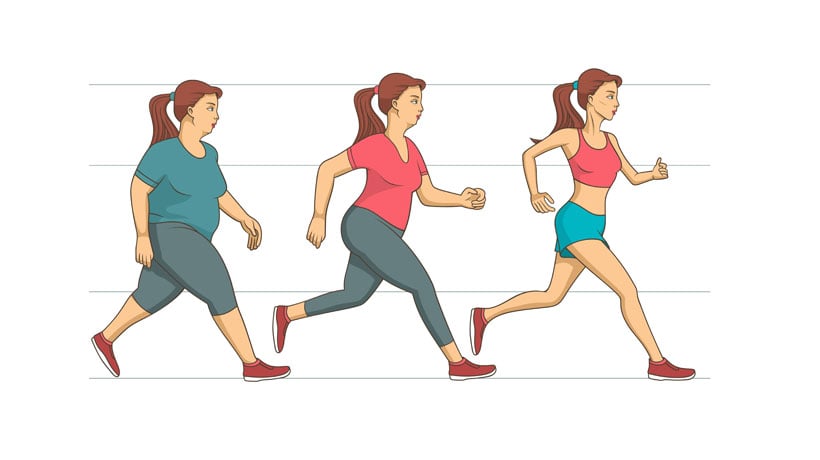Sounds too good to be true? Keep reading…
There is a slew of simple lifestyle changes that can help you lose weight—many of which have zero to do with more typical diet and exercise plans. Unfortunately, nothing on this list is going to completely remake your life, or have you looking like a new woman within 24 hours. That’s not real, and anyone who tries to convince you otherwise is probably lying (but don’t tell them that I said that).
But lucky for those of you who are tired of exercise routines and meal plans (I know I am), we’ve put together some simple but effective tips and tricks to help you lose weight.
Again they don’t replace exercise or eating right.
Check out our list below…
Check out your medicine cabinet
According to Louis Aronne, MD, from the Comprehensive Weight Control Center at Cornell University, “As many as 10 percent to 15 percent of weight issues are related to medications.” There are a few medications that are thought to contribute to weight gain: allergy relievers, anti-depressants, beta-blockers, corticosteroids, diabetes medicines, migraine medicines, mood stabilizers and seizure medications. This does not mean you should stop taking your meds. That being said, if you’re struggling with your weight, talk to your doctor about switching brands or trying a different medication.
Slow down your munching
Your body needs time to process that you’ve had enough to eat before your brain can send the signal that you’re full. Chewing your food thoroughly forces you to eat more slowly, which has been linked to increased fullness from smaller portions. In fact, a recent review of 23 studies reported that faster eaters are more likely to gain weight than their slow-eating counterparts.
Use smaller plates
Using a smaller plate may help you eat less at each meal by making the portions look larger. At the same time, a bigger plate can make a serving look smaller, causing you to pile more food onto your plate to fill it up. Use this to your advantage by serving healthy food on bigger plates, and cheat-food on smaller plates.
Eat lots of protein
Protein has powerful effects on appetite: It can increase fullness, reduce hunger and help you eat fewer calories. That’s because protein affects several hormones that control hunger and fullness, including ghrelin and GLP-1. One study found that increasing protein intake from 15 percent to 30 percent of calories helped participants eat an average of 441 fewer calories per day and lose 11 pounds in 12 weeks. Some good sources of protein include chicken breasts, fish, Greek yogurt, lentils, quinoa and almonds.
Keep high-calorie foods out of sight
You know the expression: out of sight, out of mind? Well, storing high-calorie foods where you can see them may increase hunger and cravings, and in turn, make you eat more and gain weight. One recent study found that if unhealthy foods are visible in residences, the participants were more likely to weigh more, compared to people who keep only a bowl of fruit out on their countertops.
Eat fiber-rich foods
Consuming fiber-rich foods helps you feel fuller for longer. A special kind of fiber, called viscous fiber, is particularly helpful because it increases fullness and reduces food intake. When it comes in contact with water, this kind of fiber forms a gel that increases the time it takes to absorb nutrients and slows down the stomach’s emptying process. The one catch: viscous fiber is only found in plant foods, like beans, oat cereals, Brussels sprouts, asparagus, oranges and flax seeds.
Drink water regularly
Drinking water before you eat may help you consume fewer calories at each meal. Studies have shown that participants who drank ample amounts of water before a meal lost 44 percent more weight over a 12-week period, compared to those who did not. Plus, if you reach for a glass of water over sugary drinks, you’re bound to see even more benefits from your liquid-filled diet.
Implement a no-electronics-at-the-table rule
If you eat while watching TV or using your computer or smartphone, you’re likely to ignore queues of fullness and consume more calories than you need. One review looked at the results of 24 studies and found that people who were distracted at their meals ate about 10 percent more in that sitting than otherwise.
Keep your hormones in check
Sleep and stress can have serious effects on your appetite and weight maintenance. Losing sleep can disrupt the appetite-regulating hormones leptin and ghrelin; high levels of stress can elevate amounts of the hormone cortisol in your system. When these hormones are disrupted, your hunger and cravings might be thrown out of whack.
Source:
https://www.healthline.com/nutrition/11-ways-to-lose-weight-without-diet-or-exercise



